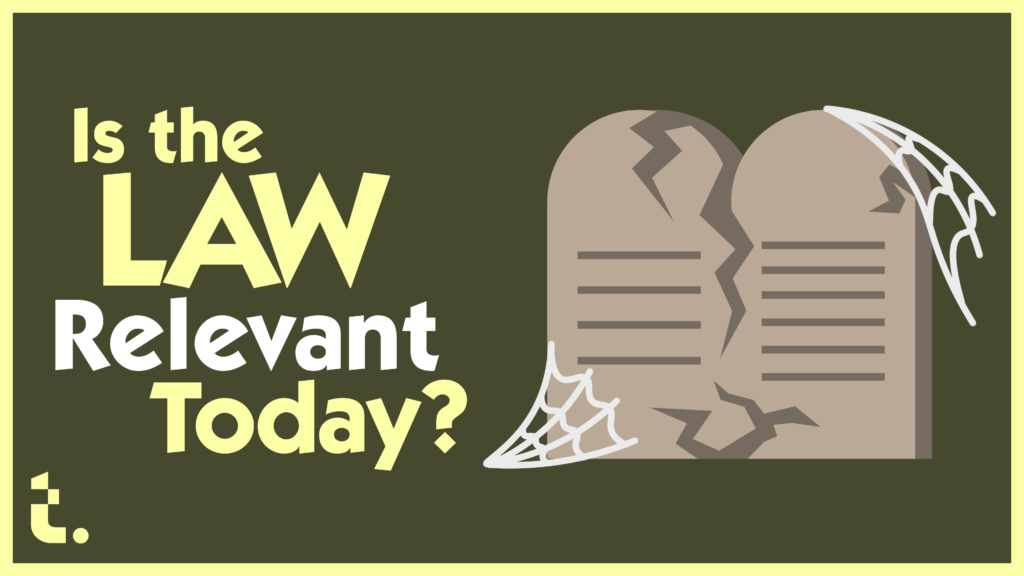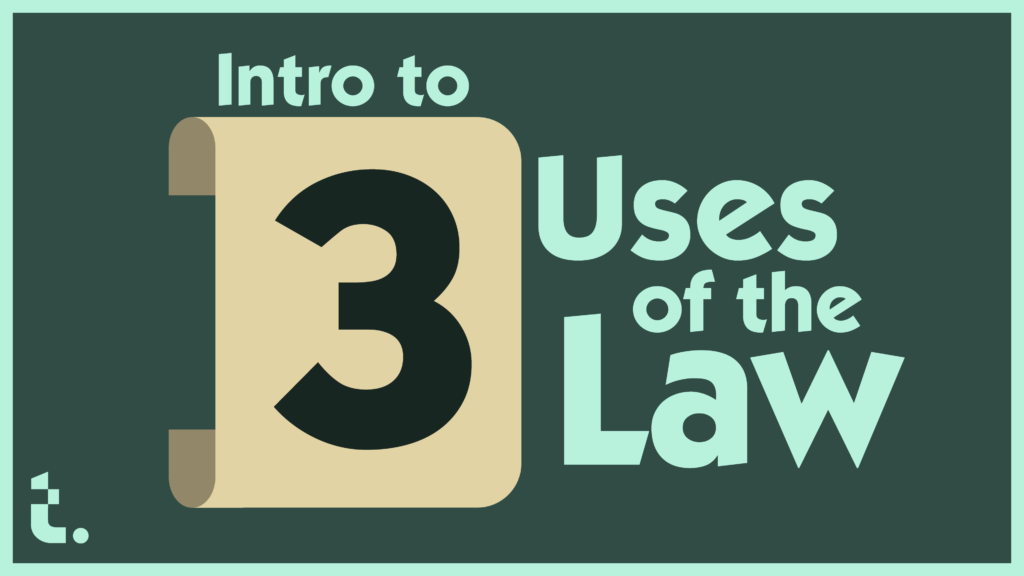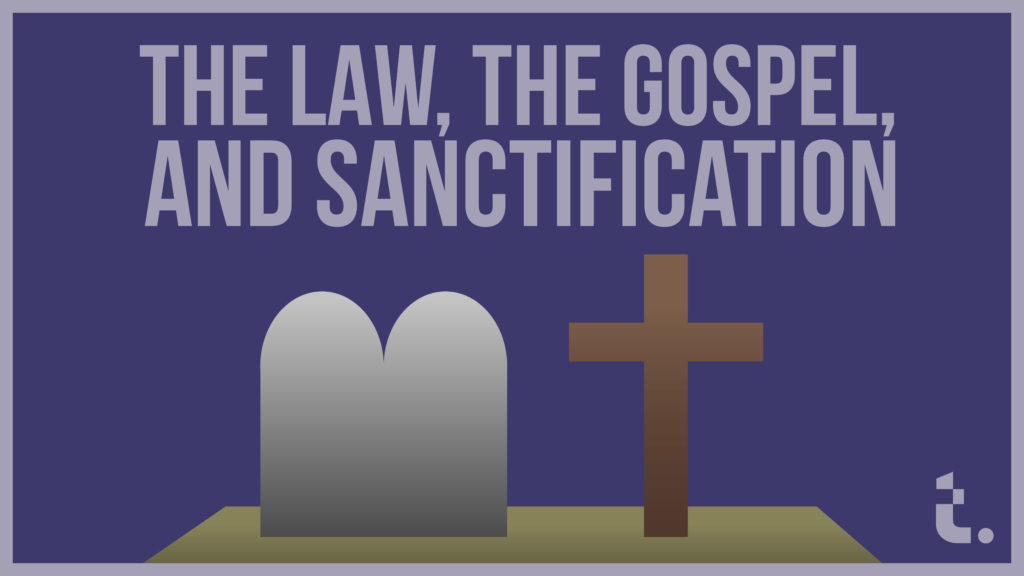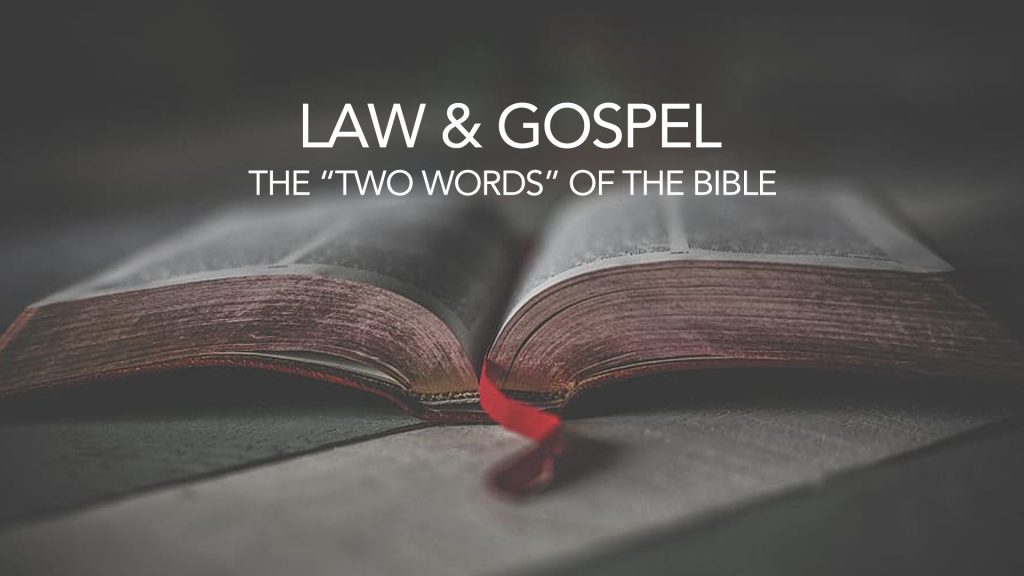
When you assess your life and your sanctification, do you conclude that there’s no way you could be God’s child? If so, it is possible that the categories of the law and the gospel have not been clearly explained for you. In today’s episode, Jon and Justin have a conversation with Josh Sommer (host of The Baptist Broadcast) about the law/gospel distinction and sanctification.

What does it mean to be an antinomian? Can we emphasize grace so much that we keep people from obeying? In this episode, Jon explains what antinomianism historically means and how Theocast and the Reformed Tradition have never been antinomian. The actual danger is believing the law can change the heart toward Christ instead of the gospel. We use the gospel to motivate our obedience, not fear or doubt.

In a war, the truth can determine who wins. In this war against Satan, if we are not clear on what the power of the gospel truly is, we will not be set free by it. Satan has been adding to the gospel for two thousand years, but not lies we would recognize. He adds God’s law into the gospel. Commands we know are good and healthy, but not when it comes to the gospel. Only grace is attached to the gospel, not the law. In This episode, Jon explains how the gospel being confused with the law is a tactic by Satan to confuse and discourage the soldiers of the King.

Today’s episode is a conversation amongst four pastors about how understanding the distinction between the law and the gospel changed their understanding of Scripture and their ministries. It is a very pastoral and personal conversation.

Jon and Justin talk about mercy, grace, confession, and forgiveness in the church amongst the saints. The guys also consider that the holier and more mature Christians become, the more gentle, patient, and merciful they become.
 This content is for our members only.Log In Subscribe
This content is for our members only.Log In Subscribe
Does too much grace lead to sin? Quite the opposite, actually. It is the preaching of Christ that leads to repentance. The right division of the law and the gospel–and the heralding of the mercy and grace of God–produces repentance in the saints. These things build a culture in a local church where it is safe to confess real sin. All of this fosters real sanctification. Jon and Justin talk about this on today’s episode.

What is the gospel? Sadly, the answer many church-going people would give has a lot to do with us. This has left some self-righteous and proud. This has left many anxious and fearful. The gospel, however, is the message about what Jesus alone has secured for sinners: the forgiveness of sins, imputed righteousness, and an eternal inheritance.

“God will render to each one according to his works: to those who by patience in well-doing seek for glory and honor and immortality, he will give eternal life…glory and honor and peace for everyone who does good, the Jew first and also the Greek” (Romans 2:6-7, 10). Is Paul writing that our works are a piece of our righteousness before God? Is he arguing that our works factor into our salvation? Jon and Justin consider the law, the gospel, and the argument of Paul from the early chapters of Romans in today’s episode.

Jon and Justin talk more pointedly about modern commentators and theologians who confuse Romans 2, as well as the dangers and fallout of this confusion.
 This content is for our members only.Log In Subscribe
This content is for our members only.Log In Subscribe
Edit
In the church, we can struggle to rightly understand and apply the grace of God in Christ. We know we need grace on the front end of salvation, but then, once in, we flip to an economy of merit. And now, we’re just collecting stars and earning cookies. It is as though we think that through our working we can retroactively vindicate God’s saving of us and turn ourselves into the kind of people God would’ve been happy to save in the first place. In this episode, Jon and Justin talk about how the Christian life is a project of self-validation for many.

In this third of three episodes on God’s law, Jon and Justin talk about the threefold division of the law. This conversation is important for anyone who has ever wondered what to make of all the laws God gave to Israel in the Old Testament. What is binding for us today? What is not? What do some of these obscure sounding commands have to do with us in the new covenant era? In short, the confessional, Reformed understanding of the threefold division of the moral, ceremonial, and judicial law is very helpful for our understanding.

In this second of three episodes on God’s law, Jon and Justin talk about the three uses of the law. In considering the three uses of the law, we are essentially answering the question, “Why did God give the law?” The first use of the law is to show us our sin and drive us to Christ. The second use is to teach all men right and wrong–and to restrain our corruption. The third use is to serve as the guide for our living in Christ. Without these uses in view, we are prone to make all kinds of errors in our application and understanding of God’s law.

In this first of three episodes on God’s law, Jon and Justin talk about the distinction between the law and the gospel. The law and the gospel are both contained in the Old and New Testaments, respectively. The law and the gospel are distinct and ought not be mixed–and, yet, they are complementary in God’s economy of salvation. The guys introduce the listener to this historically Reformed doctrine and consider why it is so important.

It sounds a little crazy to say that the gospel terrifies Christians. But it clearly does. Christians are prone to qualify the grace of God in Christ. Christians are prone to hedge on justification by faith alone. At times, Christians can even be unsettled by the preaching of Christ from all of Scripture. Why are these things so? Jon and Justin consider history, fear-based theology, pietism, law/gospel confusion, and Christ-centered preaching in today’s episode.

It sounds a little crazy to say that the gospel terrifies Christians. But it clearly does. Christians are prone to qualify the grace of God in Christ. Christians are prone to hedge on justification by faith alone. At times, Christians can even be unsettled by the preaching of Christ from all of Scripture. Why are these things so? Jon and Justin consider history, fear-based theology, pietism, law/gospel confusion, and Christ-centered preaching in today’s episode.

In John 15 when Christ says ” abide in me…” should we see that as Law or Gospel? Answered by Jon Moffitt

The guys talk about how maintaining an appropriate distinction between law and gospel leads to assurance and rest in Christ.

In this episode, the guys consider the distinction between the law and the gospel. God has revealed the law and the gospel in Scripture. They aren’t the same thing, but yet, they are often confused. This confusion results in all kinds of fallout, including robbing the believer of assurance and peace.

In this episode, the guys consider the distinction between the law and the gospel. God has revealed the law and the gospel in Scripture. They aren’t the same thing, but yet, they are often confused. This confusion results in all kinds of fallout, including robbing the believer of assurance and peace.

As we think about and read through the Bible, theologians throughout history have recognized two “voices” that rise to the top: Law and Gospel. When we understand Law and Gospel, and their proper distinction, the Bible begins to become more clear. But before we get there, what is “Law” and what is “Gospel?”






















